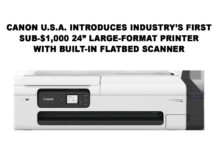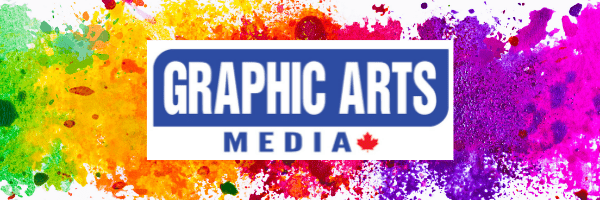Our lead stories this month contain two of my favourite topics: management and big machines. I grew up with a dad who works in construction and a bunch of best friends who built cars for fun. Big machines are pretty much second nature to me, as I recall checking out my dad’s brand new diamond blade saw (a girl’s best friend) or getting coolant all over my friend Lee’s shoes as he taught me to replace the radiator on my mom’s car. More importantly, I vividly remember the first time I saw a 10-colour Heidelberg run at a tradeshow. Anything involving earplugs and tools is my kind of fun.
You can imagine my excitement that our first lead story this month is called “Big Boy Offset.” John Zarwan gives you the scoop on what’s hot and available in the wide format offset market. The article takes you through various presses available in the market and their unique advantages and capabilities. John also talks to printers who use the equipment. They tell us what some of the benefits are of investing in this market. I, for one, would just like to stand next to one of these, let alone run one!
Our second lead article is from Chris Kular. Many of you may know Chris through his work at Ryerson and the Heidelberg Print Media Academy. Having grown up in the trade, Chris has taught generations of people about the printing industry.
In his article, “Process integration for the graphic arts workflow,” Chris takes you back to the fundamentals of running an efficient print operation. Given the rate at which we implement new technologies, combined with the amazing capabilities of presses today, it is easy to let these basics go by the wayside. The way in which we record and pass on information, job specifications, for example, can account for a majority of the mistakes made during a print run. Looking at workflow through the eyes of a manager can lead to wonderful opportunities. When a company works as a team, opportunities don’t slip by nearly as often, because so many sets of eyes have an understanding of the business.
Interestingly, I had an experience this month that resonated with workflow. I’ve recently noticed that very often I am faced with filling out forms. This is likely because of the size of the institution I work for. A couple of days ago, I went to the bank. I had to fill out a form. I happened to ask where the form goes. The banker explained to me that the form goes off to a central location, where the information is digitized, and the original is stored. He can then request the form back, and it is mailed. This to me seems exceptionally inefficient from a workflow perspective. As I begin to think about it, there are several value added hard copy print solutions I can think of that work far better. Unless you have people thinking about your process, however, it rarely improves. I hope this issue will leave you full of ideas on management and technology, because as Chris points out, two ideas are better than one





